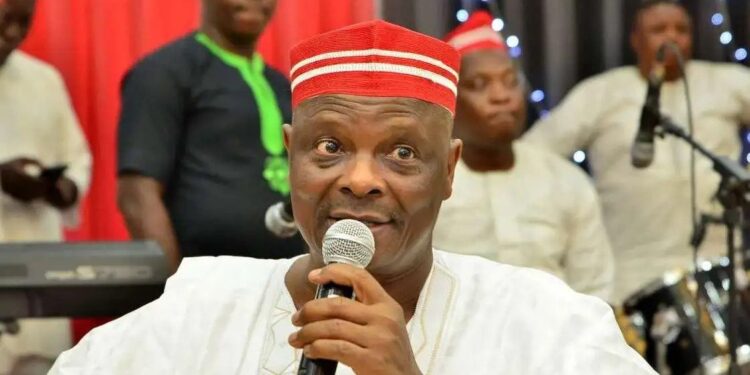The presidential candidate of the New Nigeria Peoples Party (NNPP) in the 2023 election, Rabiu Kwankwaso, says Nigerians have decided what to do in the next election.
Kwakwaso, who spoke on Thursday at the NNPP’s National Executive Coucil (NEC) in Abuja, cited widespread poverty and insecurity in the country as some of the reasons that will determine how Nigerians will vote in 2027.
“Today, many Nigerians struggle to afford food. Many are displaced from their homes due to insecurity. Others are in hospitals without proper attention, or cannot go at all because they have nothing,” he said.
“The people in this country, I can tell you for free, have made a decision on what to do in 2027. And that is why we are so happy with ourselves, because we are with the people. And the people actually know we are with them. We are not satisfied with many aspects of life across the country, particularly the issue of poverty.
“Poverty is everywhere in this country, especially in this part of the country (north). It is serious poverty. Many communities are unable to visit the farm now. Some cannot go to the market. Some cannot even return home.”
Against the backdrop of speculation about opposition alignments ahead of the 2027 general election, Kwankwaso warned NNPP members not to be distracted by the defections and coalition talks among other politicians.
“But let me remind us: we must not be distracted by political defections and speculations. Some people switch parties easily, thinking they know it all, while they actually understand little. If they truly want to know, they should come and ask us,” he said.
The former governor highlighted some of his achievements in Kano, particularly in education and security.
“In Kano, during my time, we introduced free education from primary to tertiary level. People paid nothing. We went further—we identified talented young men and women and sent over 3,000 of them to 14 countries, including the UK, India, and Jordan, to study,” he said.
“Many returned with first-class degrees. Today, they are lecturers, professionals, and doctors, serving across Nigeria and beyond. We even sent over 100 young people to Jordan to train as pilots.
“In Kano, we built flyovers, underpasses, and established 26 institutes to train and empower youth. During the height of Boko Haram, I used our experience as former minister of defence to secure Kano. Criminals tried, but they failed. That is why Kano became an island of security amidst crisis.”
















